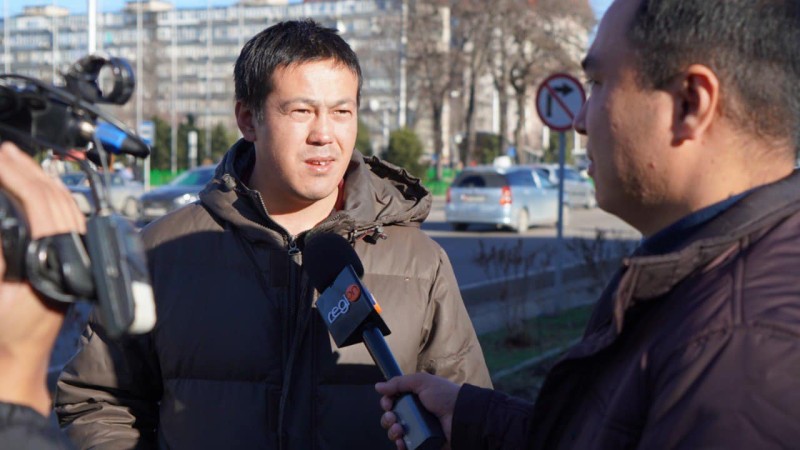The Pervomayskiy district court in Kyrgyzstan’s capital, Bishkek, allowed two more journalists to leave detention, but ordered them to remain under house arrest for the next two months. The court freed another journalist, but forbade him from leaving the country.
All 11 journalists have worked with Temirov Live, an online investigative journalism outlet that has repeatedly exposed corruption amongst government officials.
The media group’s founder, Bolot Temirov, rejected the allegation that the journalists had incited unrest in their reports.
“One could laugh at this absurdity if it weren’t so sad,” he told OCCRP.
“Today's meeting was a chance for the authorities to show in practice that they declare that in Kyrgyzstan there is freedom of speech, and there is no political persecution,” he added.
The January 16 arrests of the journalists sparked international outrage among organizations including the United Nations Human Rights Office, which called on Kyrgyzstan’s government “to protect freedom of expression.”
“These latest actions by the authorities appear to be part of a larger pattern of pressure against civil society activists, journalists and other critics of the authorities,” the UN organization’s spokesperson, Liz Throssell, said in a statement at the time.
Eight international groups, including Human Rights Watch, issued a separate joint statement urging the government to “stop intimidating and harassing journalists.”
Temirov Live, in particular, has come under attack by authorities.
In 2022, Bolot Temirov was stripped of his Kyrgyz citizenship and deported to Russia, where he also holds a passport. That move came after police searched the Temirov Live offices, where officers said they found a small bag of marijuana. Bolot said police had planted it among his possessions.
Authorities have also targeted OCCRP’s Kyrgyzstan member center, Kloop.
The Bishkek Prosecutor’s Office filed a lawsuit in August 2023 asking the court to order Kloop to be shut down. In a February 10 judgment, the court did just that.
Experts who testified in the hearings against Kloop, claimed reports about corruption in the country had triggered nervous breakdowns and other mental health issues among the population.
Kloop’s lawyers have said they will appeal the ruling.



